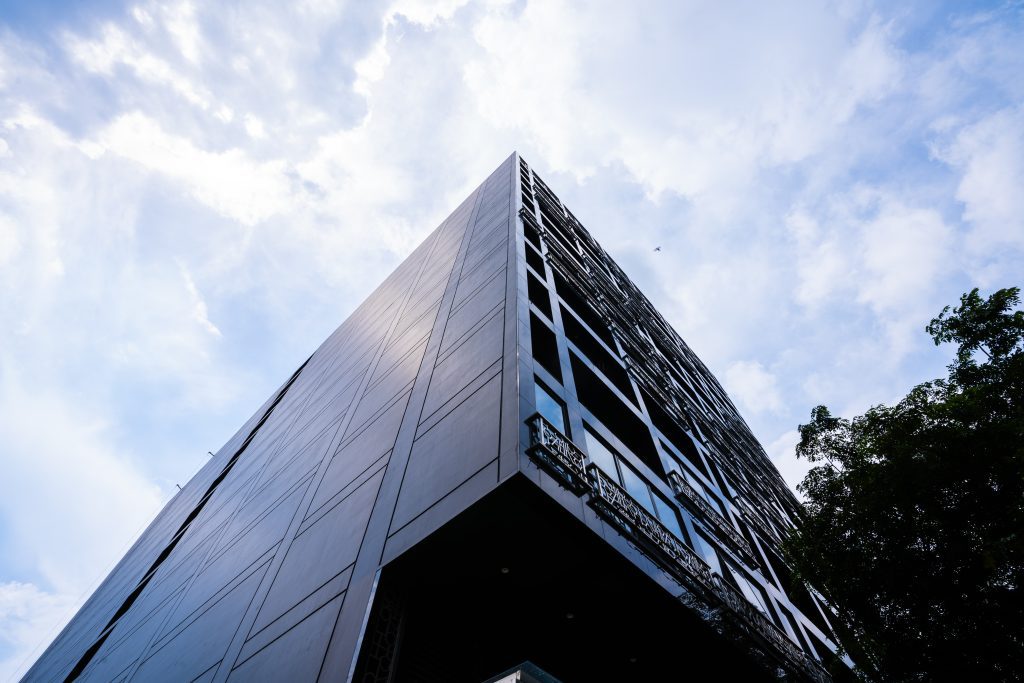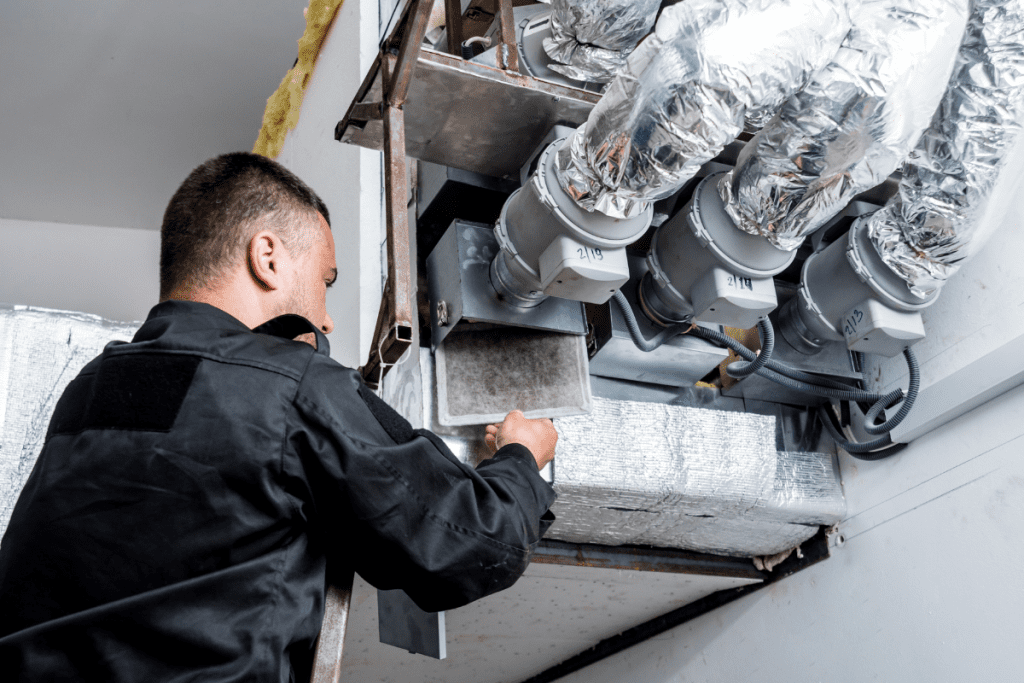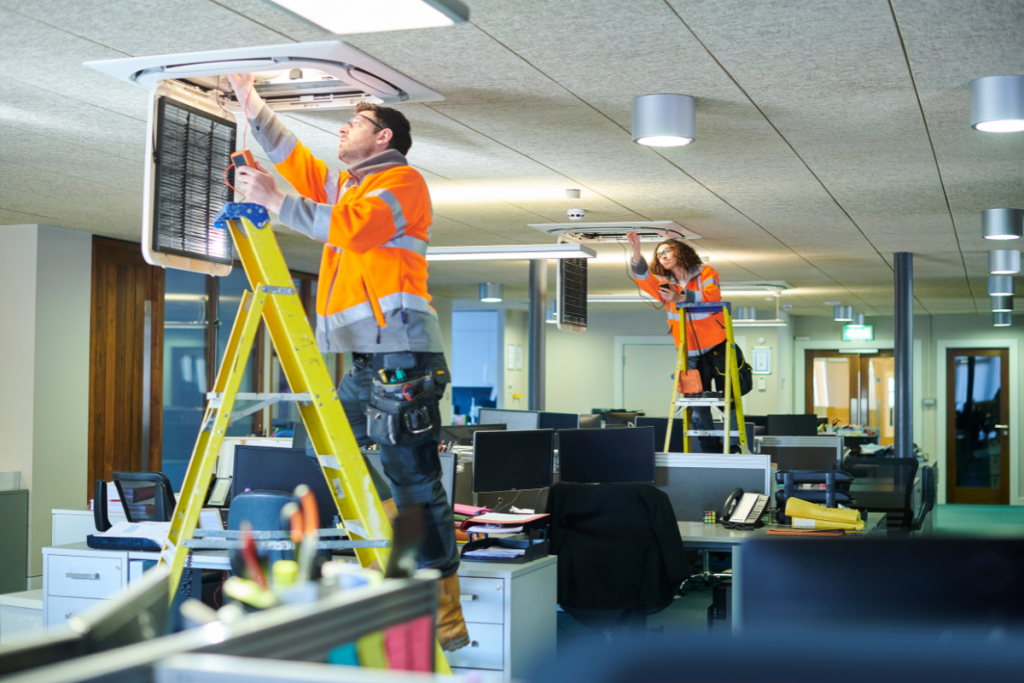What is HVAC/R
HVAC/R stands for Heating, Ventilation, Air Conditioning, and Refrigeration. When we talk about HVAC/R, we’re referring to systems that regulate, control, and circulate cooled/heated air throughout an enclosed space.
Commonly found in commercial and residential buildings, it’s a necessary system to maintain temperature, humidity, and air quality.
AC vs. HVAC/R
In tropical countries like the Philippines, the term HVAC/R might not be commonly recognized. However, the familiar air conditioning units found in these regions are integral components of this environmental control system. Here are key points to remember:
HVAC/R
It involves heating systems (to provide warmth), ventilation systems (to ensure air quality and circulation), air conditioning (for cooling), and refrigeration (for preserving perishable items and cooling applications).
AC
This is specifically focused on the cooling aspect of HVAC/R. Air conditioning systems are designed to remove heat from indoor spaces, providing a comfortable and cooler environment.
While AC is part of HVAC/R, the latter encompasses a broader range of functions beyond just cooling.
Importance of HVAC/R Room Temperature Control
The importance of effective temperature control cannot be overstated, and it encompasses several key aspects that contribute to the comfort, health, and productivity of occupants.
Here are some of the key points highlighting the significance of HVAC/R room temperature control:
Comfort
Maintaining optimal room temperature ensures occupant comfort and productivity. Whether it’s a commercial building, residence, or industrial facility, people work better and feel more at ease in environments with controlled temperatures.
Health and Safety
Proper HVAC/R control helps regulate indoor air quality, reducing the risk of airborne pollutants, allergens, and pathogens. This is crucial for maintaining a healthy indoor environment, especially in buildings where occupants spend extended periods.
Energy Efficiency
HVAC/R systems consume a significant portion of a building’s energy. Efficient temperature control minimizes energy waste by ensuring systems only operate when necessary and at optimal levels. This helps reduce utility bills and lowers the building’s carbon footprint.
Equipment Longevity
Consistent temperature control helps preserve the lifespan of HVAC/R equipment by preventing unnecessary strain and wear. Properly maintained systems are less prone to breakdowns and require fewer repairs, saving time and money in the long run.
Process Control
In industrial settings, precise temperature control is essential for various manufacturing processes, laboratories, and cleanrooms. Fluctuations in temperature can negatively impact product quality, yield, and overall process efficiency.
Data Centers
Data centers rely on HVAC/R systems to maintain stable temperatures for cooling sensitive equipment and preventing overheating. Even slight temperature variations can lead to equipment malfunction, data loss, and costly downtime.
Regulatory Compliance
Many industries are subject to regulations and standards regarding indoor air quality, temperature control, and energy efficiency. Compliance with these regulations is essential to avoid fines, penalties, and legal liabilities.
Emergency Preparedness
In extreme weather conditions, HVAC/R systems are crucial for providing heating or cooling to maintain livable conditions. Properly functioning systems can help protect occupants from heat strokes, hypothermia, or other weather-related health risks.
What is HVAC/R Ideal Temperature
Now that we’ve gone over the importance of a temperature-controlled environment, let’s define what the baseline room temperature is for office comfort.
Maintaining optimum comfort levels in offices is crucial for creating a conducive and productive work environment. The 21 – 26°C (69.8 – 78.8°F) is widely accepted as the ideal comfort zone for office spaces.
Factors that Influence Baseline Temperature



- Building Orientation Design. The orientation of a building relative to the sun’s path affects the amount of solar heat gain it experiences.
- Occupancy Levels. Higher occupancy levels result in increased heat generation from human activity and metabolic processes, leading to elevated baseline temperatures. Additionally, buildings with fluctuating occupancy, such as office buildings or event venues, may experience varying baseline temperatures throughout the day.
- Seasonal Variations. HVAC systems often adjust their operation based on seasonal variations to meet changing temperature demands and maintain consistent indoor comfort levels. Even if the Philippines doesn’t have a winter season, the country is still prone to humidity and fluctuating temperatures due to thunderstorm season.
- Thermal Insulations. The quality and effectiveness of thermal insulation significantly impact a building’s baseline temperature. Well-insulated buildings can resist heat transfer through walls, floors, and roofs, helping to maintain stable indoor temperatures regardless of external conditions.
- Equipment to Use. The type and efficiency of HVAC/R equipment used in a building influence its ability to control baseline temperature. Properly sized and maintained equipment ensures optimal performance and temperature control, enhancing occupant comfort and operational efficiency.
Preventive Maintenance for Room Temperature
Regular preventive maintenance of HVAC/R systems is essential for ensuring optimal performance and temperature control. Scheduled inspections, cleaning, and servicing help identify and address potential issues before they escalate, preventing disruptions to temperature regulation.
This includes the following processes:
Thermostat Calibration
Accurate thermostat calibration is critical for precise temperature control within a building.
Periodic calibration ensures that thermostats accurately measure and respond to temperature changes, preventing under or overcooling/heating.
Calibration adjustments may be necessary due to factors such as sensor drift, aging components, or environmental changes.
Zoning and Temperature Control
Zoning helps optimize energy usage by directing heating or cooling only to occupied areas, rather than conditioning the entire building uniformly.
By adjusting temperature settings according to occupancy patterns and preferences, zoning systems enhance comfort levels while reducing energy waste.
Regular Maintenance and Inspection
Regular maintenance and inspection of HVAC/R systems ensure their continued operation and efficiency.
Scheduled inspections by qualified HVAC technicians or HVAC contractors can identify issues such as air leaks, duct obstructions, or refrigerant leaks that may affect temperature control.
Addressing maintenance issues promptly helps prevent system malfunctions, breakdowns, and costly repairs, ensuring uninterrupted temperature regulation.
Get Better Air Quality in the Office with an HVAC Technician
Santos Knight Frank’s Technical Services division partners with HVAC contractors to enhance the air quality in office spaces seamlessly. Through collaborative efforts and under the guidance of our experienced team, businesses can efficiently tackle air quality concerns.



Our skilled HVAC technicians and engineers bring the expertise needed to assess, maintain, and optimize HVAC systems, ensuring they function at their best.
Whether it’s troubleshooting existing issues, performing routine maintenance, or implementing upgrades, entrust Santos Knight Frank to assist your business in fostering a healthier and more comfortable indoor environment for employees and visitors alike.
Contact us today to learn more about our Technical Services.
- Tags:



